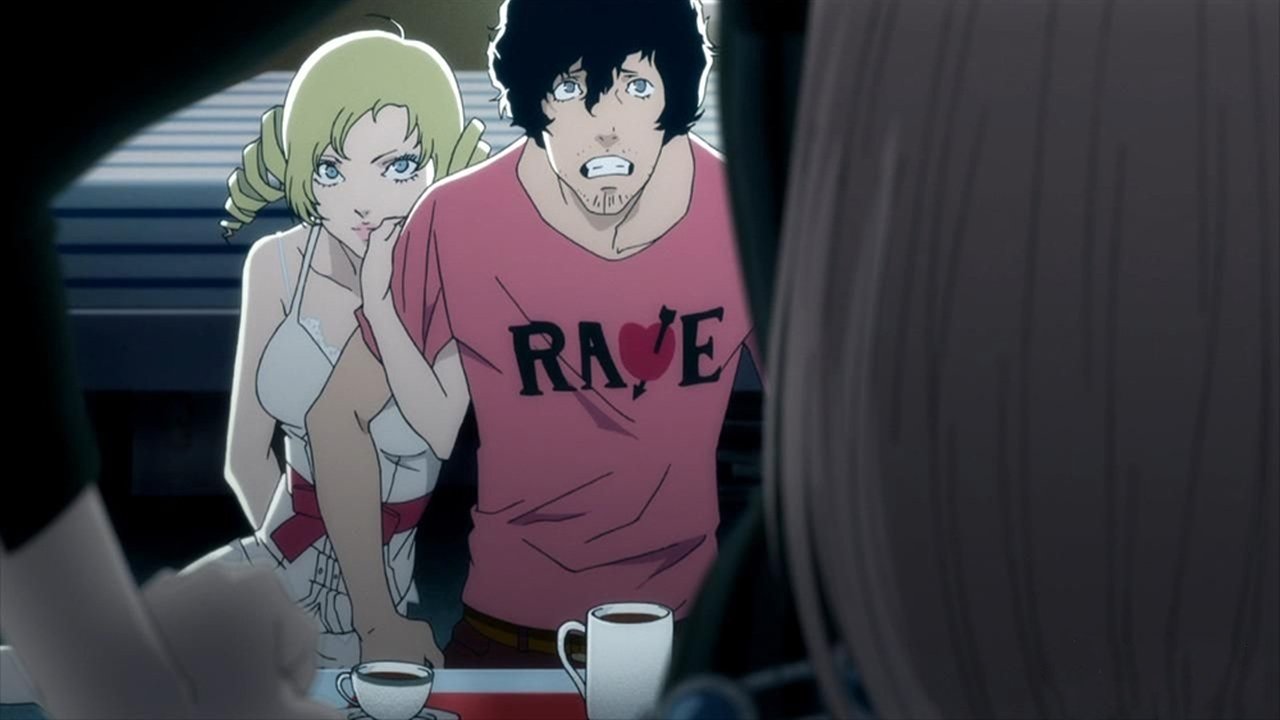Many of the people reading this likely first encountered videogames through early Mario and Zelda titles or, maybe, later games like Pokemon or Crash Bandicoot. As years went by some games made an attempt to grow up with them, offering more sophisticated experiences that mostly revolved around gating gore, sexuality and gold ol’ fashioned cussing behind ESRB dictated age restrictions. These kind of games were — and still are — meant to appeal to players who are tired of kid-friendly games like mascot-centred or benign racing titles. They, in most cases, miss the point of offering games for adults almost completely.
Catherine, a puzzle/adventure hybrid from Atlus, takes a different approach, eschewing gratuitous content for a level of maturity that has more to do with life experience than anything else. Though its lingerie sporting cover and anime aesthetic may make the game appear a bit juvenile at first blush Catherine’s surface trappings belie a willingness on Atlus’ part to attempt what few other developers have ever tried: telling a story concerned with the kind of issues that are important to adult players. There is nothing in the game that would necessarily be unsuitable for younger audiences — there is a lot of drinking, smoking and swearing, sure, but no nudity, explicit sex or over-the-top gore — but the fact remains that the game wouldn’t be appealing to most kids and teenagers because it doesn’t tell a story that fits into their life experience.
The game’s protagonist, Vincent, is 32, works a full-time job and is undergoing an existential crisis that forces him to re-examine his relationships and, essentially, discover what he actually wants out of the rest of his life. His infidelity — cheating on his long-time girlfriend Katherine with the game’s namesake Catherine (I see what you did there, Atlus) — forms the basis of the entire story and ties in with a sort of early mid-life crisis that is familiar to players confronting post-collegiate life, finding themselves embedded in careers and/or serious relationships. Simply enough, the story in Catherine, if it fell into the hands of the typical 12 year old girl or boy, really just wouldn’t resonate with her or him.
This is directly opposed to what the videogame industry usually marks out as mature content. The level of difference between a story that warrants a mature distinction because of its portrayal of age, sexuality and the anxiety of commitment and one that is slapped with an M rating because, y’know, you can rip dudes in half with your arm chains or shoot through a head and watch it explode in slow-mo is huge. And it really makes you wonder which one — a psychological thriller based on exploring common human experience or aimless gore porn — deserves being branded as mature.As I’ve written before, videogames have now become such a widely accepted medium that they can only benefit from broadening the range of subject matter they tackle. Expanding the horizons of what types of story can be presented in a game makes for a fuller, more representative medium. Less people would care for movies if they were comprised almost entirely of action, horror and crime thrillers and hardly anyone would care much about books if their stories were concerned entirely with superheroes and war memoirs. Games, like all art, have to continue branching out into new areas in order to give audiences the kind of experiences that resonate most deeply with their own thoughts and lives.
There will always be a place for the type of genres that make up the industry’s current roster of bestsellers (military shooters and high octane action adventures), but videogames able to embrace mature themes on a less superficial level are incredibly necessary for the growth of the medium. What we have now is an industry where maturity is a shorthand for the spectacle of 18A/R rated summer blockbusters, rather than a label that may carry with it explorations into social, cultural or political issues. Catherine is the kind of experience that makes people who may otherwise never have given videogames a chance an inkling of what the medium is capable of providing. A future where an increasing number of developers are willing to experiment more with embracing this level of maturity — a maturity defined by thought rather than gratuity — would make for a much more interesting industry than what we currently have.
***
Reid McCarter is a writer, editor and musician living and working in Toronto. He has written for sites and magazines including Kill Screen, The Escapist and C&G Magazine. He founded, writes and edits the videogame blog digitallovechild.com and is Twitter-ready @reidmccarter.




